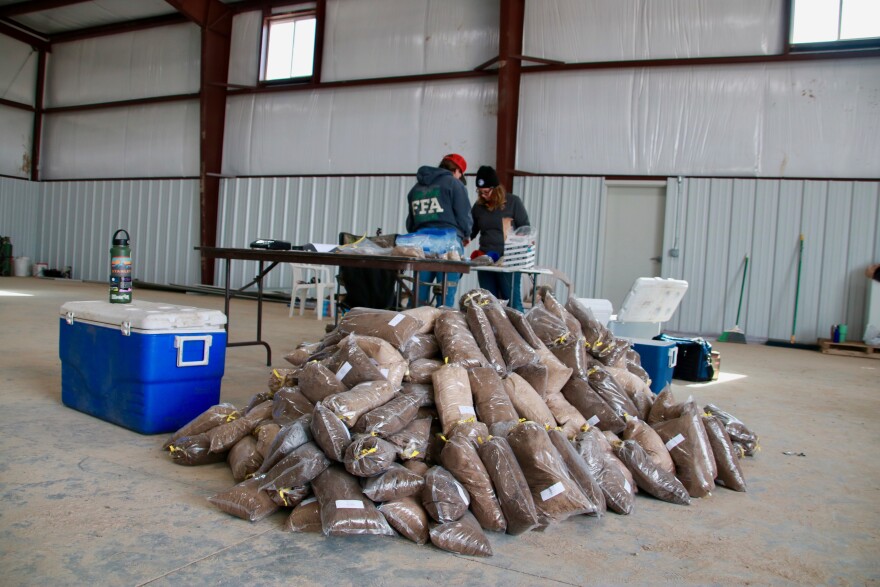Last week, researchers from the University of Idaho began taking soil samples on the site of the nation's largest research dairy.
The $45 million CAFE project, otherwise known as The Idaho Center for Agriculture, Food and the Environment, will eventually be a production-scale research dairy with 1,000 to 2,000 cows. It will operate as a commercial farm, while also allowing various groups to study solutions to the biggest challenges facing the dairy and food processing industries.
The goal is to help farmers lead profitable businesses that are also environmentally sound. The research will answer questions like: "What are the financial pros and cons of adding robotic technologies?" Or, "How do dairy farmers manage the waste cows produce?"
Plans for CAFE have been in the works for more than a decade, and fundraising is still a challenge, according to Michael Parrella, Dean of the College of Agricultural and Life Sciences at the University of Idaho.
The state legislature earmarked one third — $15 million — of the needed funds to the project through the Permanent Building Fund, the University will cover another third itself and it is responsible for raising the final third from industry partners like the Idaho Dairymen's Association and the Idaho Farm Bureau, among others.
Still, the University of Idaho is starting work at the Rupert facility, which it purchased in March with the Idaho Dairymen's Association.

University of Idaho researchers and volunteers collected soil samples at the site, starting a process of ongoing scientific studies, some of which will span at least a few decades.
They used augers to pull clusters of silt loam soil out of the ground, filled plastic bags of dirt from pre-determined GPS locations and drove them into the barn for processing.
Inside, Linda Schott, an assistant profressor of nutrient and waste management at the University of Idaho Twin Falls extension, filtered the rocks and clumps out of the soil.
Schott is managing the CAFE project, which includes the Rupert site and an education center in Jerome that was purchased this summer, which also incoporates food processing programs on College of Southern Idaho's campus.
Schott says some of the soil samples will go to labs in Moscow where researchers will get a sense of the microbial variability on the property. They'll also save some samples for future research.
“Because sometimes there’s new methods, or there’s a new test or a new concern that comes up in five or 10 years that we can’t predict now,” Schott says.
They’re doing soil testing now to make sure there’s a good baseline knowledge of the soil properties, Schott says. And then, they’re going to track what happens when cows and their waste are introduced to a new area.

They will want to know things like “how quickly manure changes soil properties and whether or not we can manage manure better as a whole region,” Schott says. The fields in Rupert were previously in alfalfa and barley rotations, so manure has never been applied there.
Idaho dairy farms milk more cows each year; Idaho is now tied with California for having the most farms with more than 5,000 cows, according to the 2017 Agricultural Census released in April of 2019. The CAFE project aims to understand the growth in herd size and the future of dairy farms in the West, home to arid environments that are unlike other dairying hubs in the country.
Cows aren't set to be milked at the facility until 2024.
Find reporter Rachel Cohen on Twitter @racheld_cohen
Copyright 2019 Boise State Public Radio




